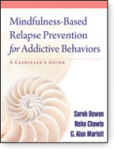Is it possible to panic mindfully?
 For James Henry, a psychiatry resident at UC San Francisco, the question is not just theoretical. While a medical student at UC San Diego, Dr.
For James Henry, a psychiatry resident at UC San Francisco, the question is not just theoretical. While a medical student at UC San Diego, Dr.
 For James Henry, a psychiatry resident at UC San Francisco, the question is not just theoretical. While a medical student at UC San Diego, Dr.
For James Henry, a psychiatry resident at UC San Francisco, the question is not just theoretical. While a medical student at UC San Diego, Dr.
A fascinating interview with Jon Kabat-Zinn from 2009 entitled "Opening to Our Lives" by Krista Tippett of American Public Media for her program "Krista Tippett on Being." Note that there is a small excerpt (and link) on the site of Jon reading Derek Walcott's wonderful poem "Love after Love:"
Why are we meditating? What are we seeking? Does this look familiar? I don't know the original source, if someone does, send it along and we will provide proper credit.
If you can start the day without caffeine or pep pills,
If you can be cheerful, ignoring aches and pains,
If you can resist complaining and boring people with your troubles,
If you can eat the same food everyday and be grateful for it,
 Guilford Press has recently released Mindfulness-Based Relapse Prevention for Addictive Behaviors by Sarah Bowen, Neha Chawla and G. Allan Marlatt, the developers of MBRP.
Guilford Press has recently released Mindfulness-Based Relapse Prevention for Addictive Behaviors by Sarah Bowen, Neha Chawla and G. Allan Marlatt, the developers of MBRP.
Shauna Shapiro and her colleagues (reference below) wrote about the mechanisms of mindfulness and highlighted "reperceiving" as a fundamental shift in perspective that arises out of the practice of mindfulness. This is not just an interesting theoretical point, it has real consequences.

Zindel Segal of the University of Toronto, lead author of a study published in the Archives of General Psychiatry that found no difference between antidepressant medication and Mindfulness-Based Cognitive Therapy (MBCT) in preventing relapse in depress
A study just published in the Springer journal Mindfulness by Raes and Williams, explores the relationship between rumination and mindfulness. From the abstract: "when controlling for current depressive symptoms and prior history of depression, mindfulness was significantly negatively correlated with rumination, but it was only associated with the extent to which rumination was experienced as uncontrollable, not with global levels of rumination.
If you accept the premise that the present moment is the "place to be" in regard to finding ease, well-being, contentment and equanimity, then the real question becomes: "How do I bring myself to the present moment?"
I have found that there is a very simple but very powerful question (that is also a little bit silly) that can serve as a terrific reminder to become present.
Ready? Brace yourself!
Here it is: Where Are My Feet?
The journal Pain has scheduled an article for publication in a future issue: "A non-elaborative mental stance and decoupling of executive and pain-related cortices predicts low pain sensitivity in Zen meditators." The authors are Joshua A. Grant, Jerome Courtemanche, and Pierre Rainville.
This study provides some insight into how pain is experienced in the brain and the potential power of mindfulness practice in impacting that experience. We often talk about distinguishing between sensation and distress when it comes to pain, and this study provides some insight into how that works and how mindfulness might play a role in reducing distress and thereby improving the quality of life of those in pain. Check it out!
Scroll to Top